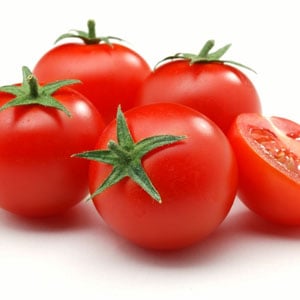
In fact, higher intake of another antioxidant found in many vegetables, beta-carotene, appears to increase the risk for aggressive prostate cancer, researchers report. Many people also take beta-carotene in supplements.
The new study, involving more than 28 000 men, "hampers our enthusiasm for a beneficial effect of lycopene," said lead author Ulrike Peters, a research assistant professor at the Fred Hutchinson Cancer Research Centre. "Tomatoes, and tomato found in tomato sauce and pizza, don't reduce the risk for prostate cancer," she added.
The report is published in the May issue of the journal Cancer Epidemiology, Biomarkers & Prevention.
In their study, Peters and colleagues collected data on men enrolled in the Prostate, Lung, Colourectal, and Ovarian Cancer Screening Trial. All of the men had no prior history of prostate cancer. They were screened for the disease at the start of the trial in 1993, and then followed with regular screening until the first occurrence of prostate cancer or death by the end of the trial in 2001.
Made no differenceDuring the course of the trial, 1 320 prostate cancer cases were diagnosed. Peters's team found no significant difference in blood levels of lycopene between men who had prostate cancer and those who didn't.
In fact, they found an association between increased risk of aggressive prostate cancer - disease that has spread beyond the prostate - and higher intake of beta-carotene, another antioxidant found in many vegetables and commonly used as a dietary supplement.
Beta-carotene has also been linked to increased risk for lung cancer and heart disease among smokers, Peters noted. "People should be very cautious about taking high doses of supplemental beta-carotene," she said.
The researcher believes the best strategy for preventing cancer in general is to not place one's faith in a particular food, but to live an active, healthy lifestyle.
Another expert agreed that men should not be taking lycopene or beta-carotene to prevent prostate cancer.
"This is a disconcerting finding," said Marji McCullough, a senior epidemiologist at the American Cancer Society. "It raises the concern that more of a nutrient is not always better," she said.
Multivitamins may increase riskMcCullough noted that even taking multivitamins has been linked to an increased risk of prostate cancer, as evidenced by a study published this week that found that more than one multivitamin per day significantly raised men's risk for the cancer.
"Our guidelines suggest that people eat a mostly plant-based diet with a variety of vegetables and fruits," McCullough said. "We don't recommend taking multivitamins or other supplements, especially beta-carotene supplements," she said. – (HealthDayNews)
May 2007




 Publications
Publications
 Partners
Partners















